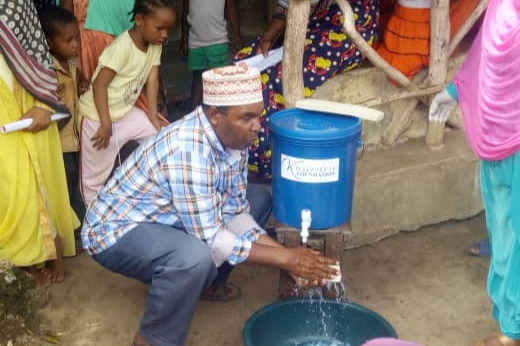8 VILLAGES IN PEMBA, WALIA AND ZAWA FACE WATER ISSUES
Our Pemba Reporter
Eight villages on Pemba Island have lacked clean and safe water service while complaining to the Zanzibar Water Authority for failing to solve the water problem in their villages.
The villages lacking water are in Micheweni District, North Pemba Region.
Speaking at different times, citizens have said that the water service is not reliable, it is a random situation that causes them to experience inconvenience.
More than 6,000 residents in the villages of Kichekwani, Nduaga, Tundumwe, Mkunguni, Msasani and Momogu do not have clean and safe water.

The residents have said that they have to buy water that they use for cooking and drinking.
The residents use sea water for washing dishes and other activities.
Kurata Bakar Said said that ZAWA’s water service has become scarce and they do not know when they will get rid of the water crisis.
Fatma Mohamed Awadhi has said that ZAWA water has become precious to them while their canals have remained an ornament in their homes.
The sheriff of Shumba Urban Sheriff, Rahila Ramadhan Juma has said that there are many complaints from citizens about the lack of water service.
“In fact, ZAWA’s water service in my Shehia is a chronic problem, there are people who buy water, those who can’t afford it use sea water” said Sheha Rahila.
Tanzania, Zanzibar, Pemba Island Water Crisis
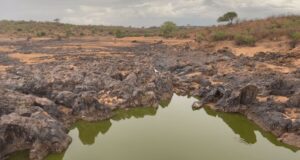
Leaders in Tanzania linked to destruction of the environment
The Tanzanian government has said that there are some leaders in the country for their personal interests who are contributing to the destruction of the environment including water sources and causing rivers to dry up. 12 families of leaders including ministers, politicians and judges are accused of being involved in the destruction of the water sources of the Ruaha Mkumu River.Continue Reading

VP told of 12 powerful families destroying Tanzania water ecosystem
Twelve “powerful’ families have been put in the spotlight to Tanzania Vice President, Dr Philip Mpango for allegedly owning a ranch in Usangu that is blocking the Ihefu Valley, consequently limiting water supply to the Great Ruaha RiverContinue Reading
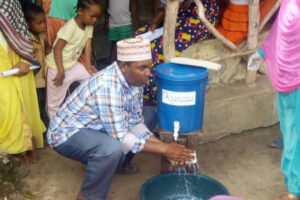
Villagers on Pemba Island lack clean sanitized water
Eight villages on Pemba Island have lacked clean and safe water service while complaining to the Zanzibar Water Authority for failing to solve the water problem in their villages.Continue Reading

Vijiji vinane Kisiwani Pemba vimekosa huduma ya maji
Vijiji vinane Kisiwani Pemba vimekosa huduma ya maji safi na salama huku wakiilalamilia Mamlaka ya Maji Zanzibar kushindwa kutatua tatizo la maji katika Vijiji vyao.Continue Reading
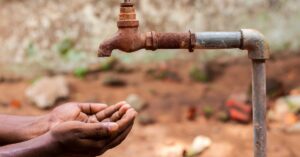
Water Crisis in Tanzania – Time for Technology and Innovation Solutions
During the COP27 summit in Egypt, the city of Dar es Salaam and other parts of Tanzania face severe water shortages that were brought on by drought.Continue Reading
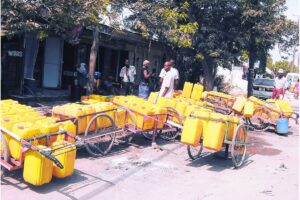
Tanzania: Empty water taps for weeks wake-up call
Tanzania: Empty water taps for weeks wake-up call. At least for regulated bottled water businesses, we are assured of safety. But for the water from dubious sources, including those close to sewers, there may be a spike of diseases like cholera, and diarrhea, among others.Continue Reading
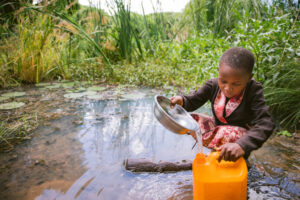
Protecting Water Sources – Tanzania State Directives
Tanzania Water Crisis: VICE-PRESIDENT Dr Philip Mpango has directed Regional Commissioners to supervise the countrywide campaign of planting water friendly trees along water sources, while ordering people who have built houses on mountainous sources of water to immediately vacate in order to protect the areas.Continue Reading
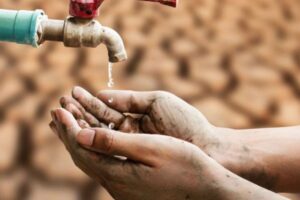
Dereliction of duty and endless water crises in Dar es Salaam Tanzania
Once Dar es Salaam residents in Tanzania enjoyed reliable water supply by the authorities, but those days are long gone. Why?Continue Reading

MGAO WA MAJI WAWATESA WAZANZIBARI
Wananchi wengi hasa katika maeneo ya Mjini Unguja, wanalalamikia ukosefu wa maji safi na salama huku Mamlaka ya Maji Zanzibar ikikabiliwa na changamoto ya ukosefu wa ujuzi na wataalam katika masuala ya uandisi wa Maji na fani nyengine.Continue Reading
Share this news
This Year’s Most Read News Stories

Zanzibar airport monopoly puts 600 jobs at risk
On September 14, 2022, the director general of ZAA issued a directive that gave Dnata Zanzibar Aviation Services Limited an exclusive access to the newly constructed Terminal III, barring other operators.Continue Reading

East African Community Bloc Dismisses Fake Common Currency
The secretariat of the East African Community (EAC) regional bloc has dismissed a post on X, formerly Twitter, which claimed that the bloc’s member countries have launched a common regional currency.Continue Reading

Will Tanzania agree to Starlink Internet Service?
Will the Tanzania government let Starlink, the world-famous internet service provider, operate in the country?Continue Reading

